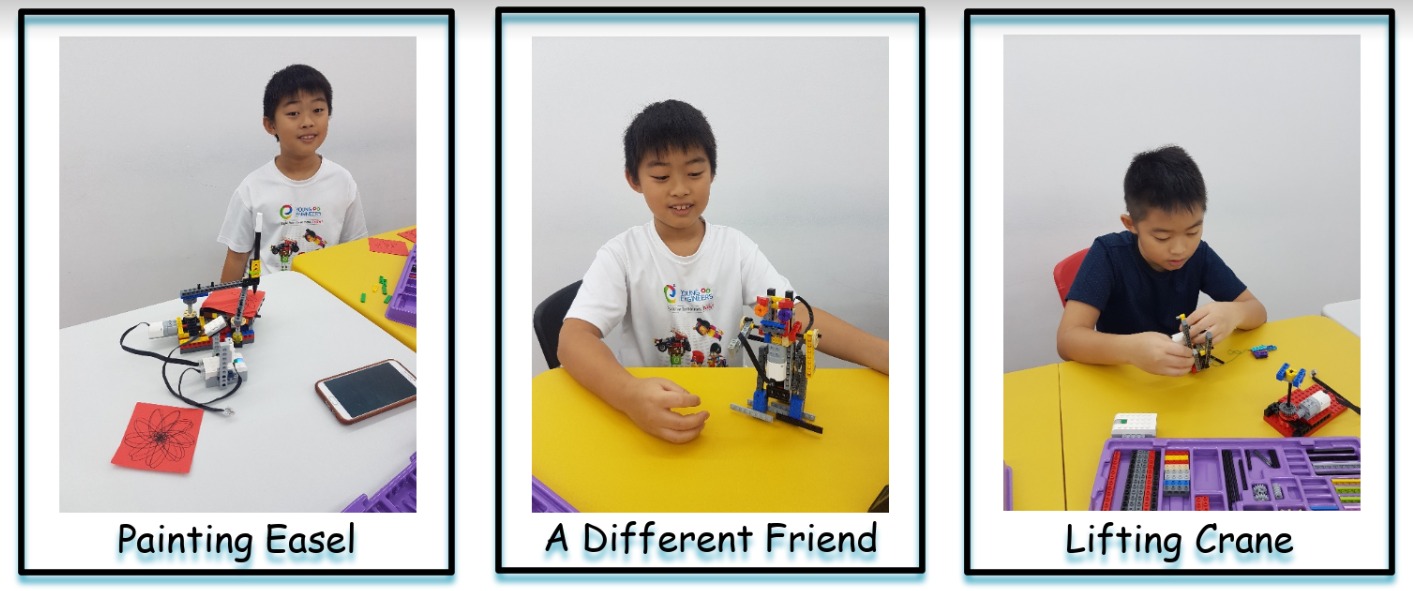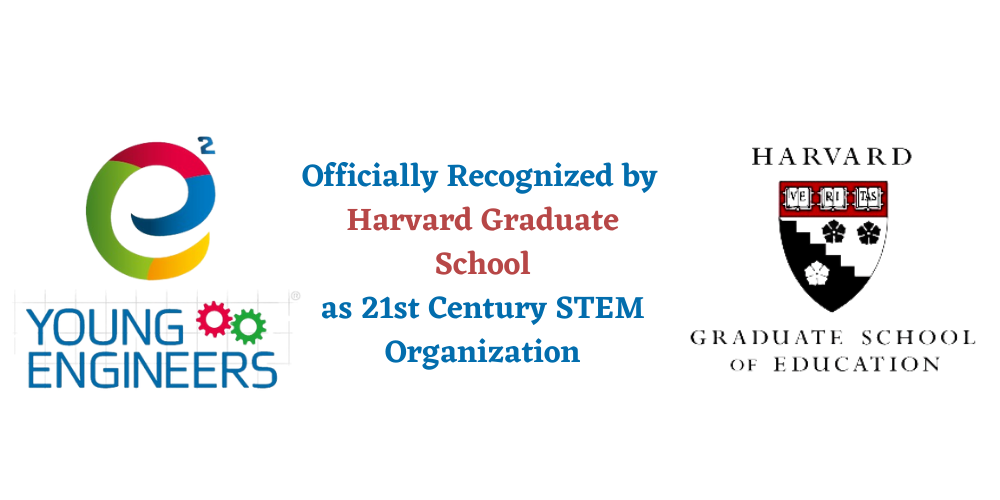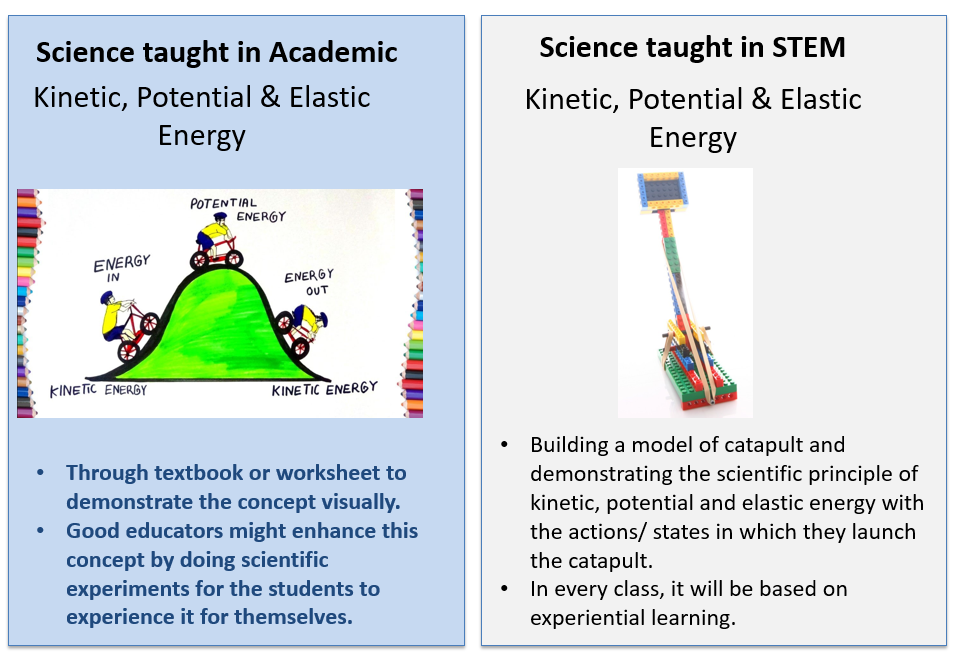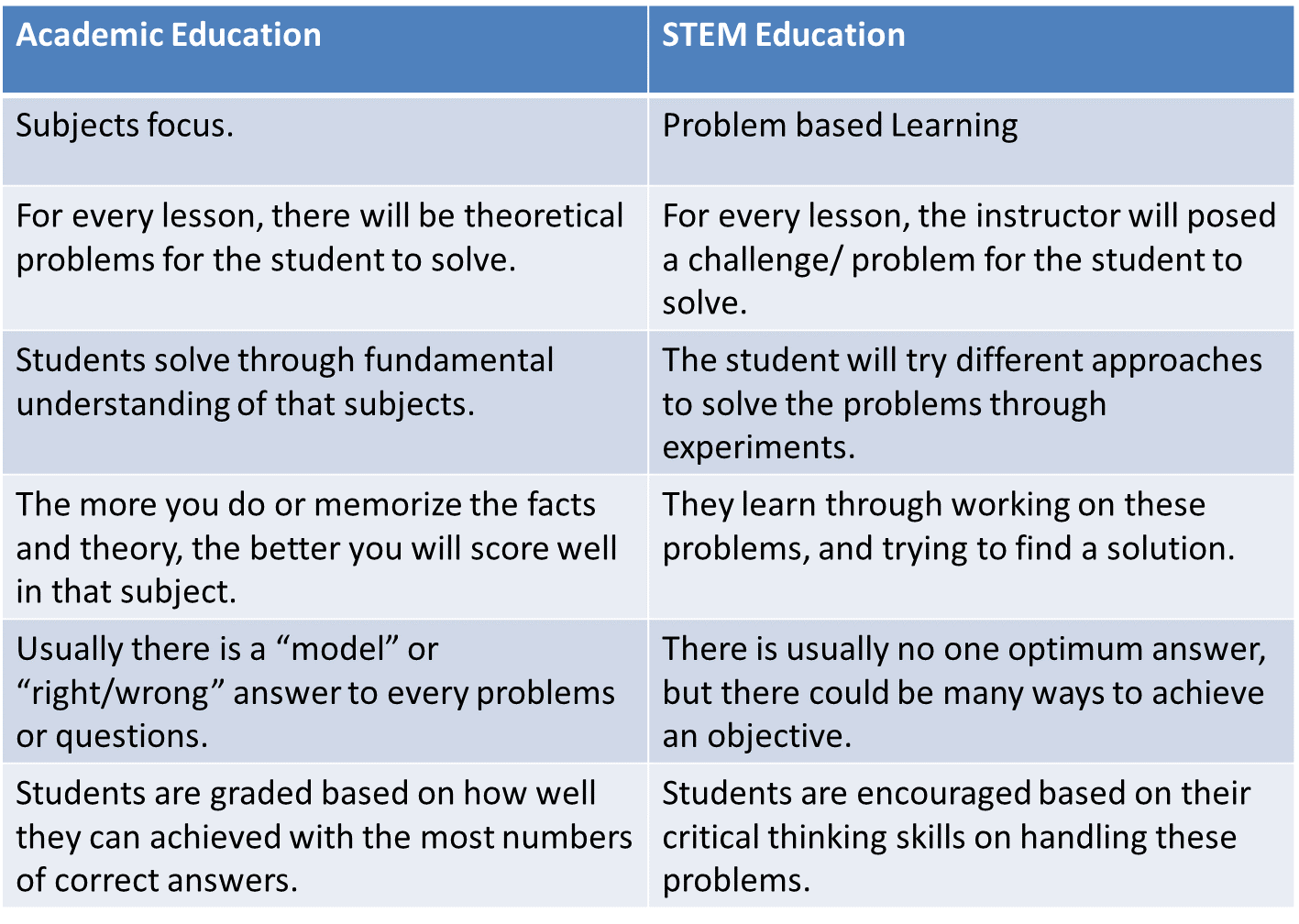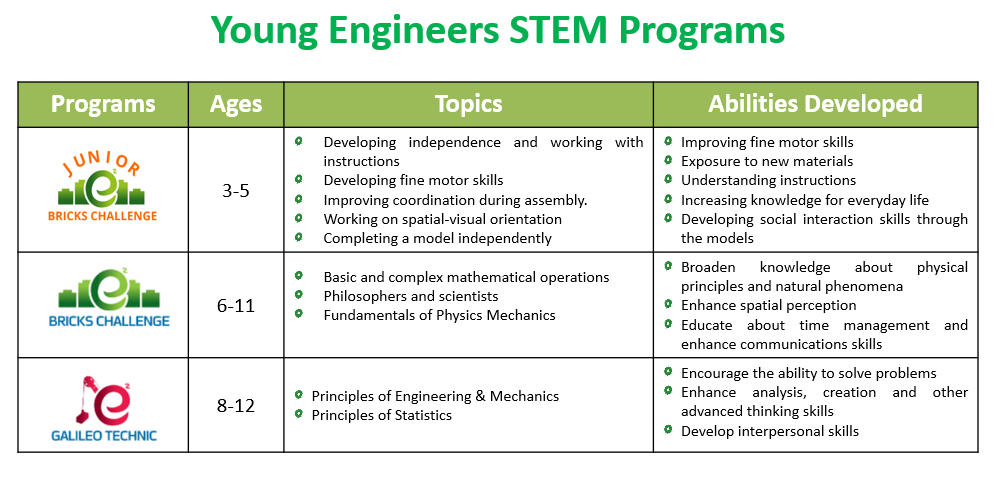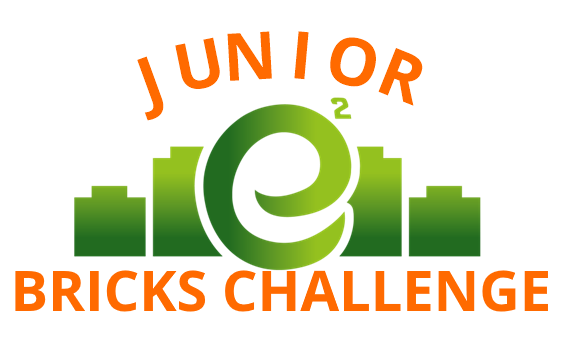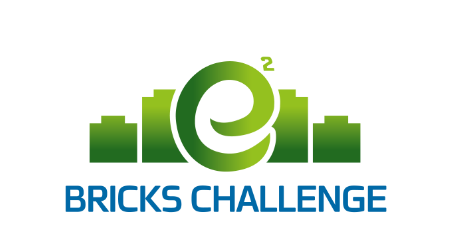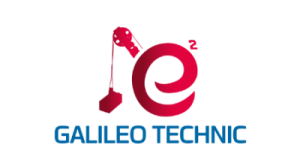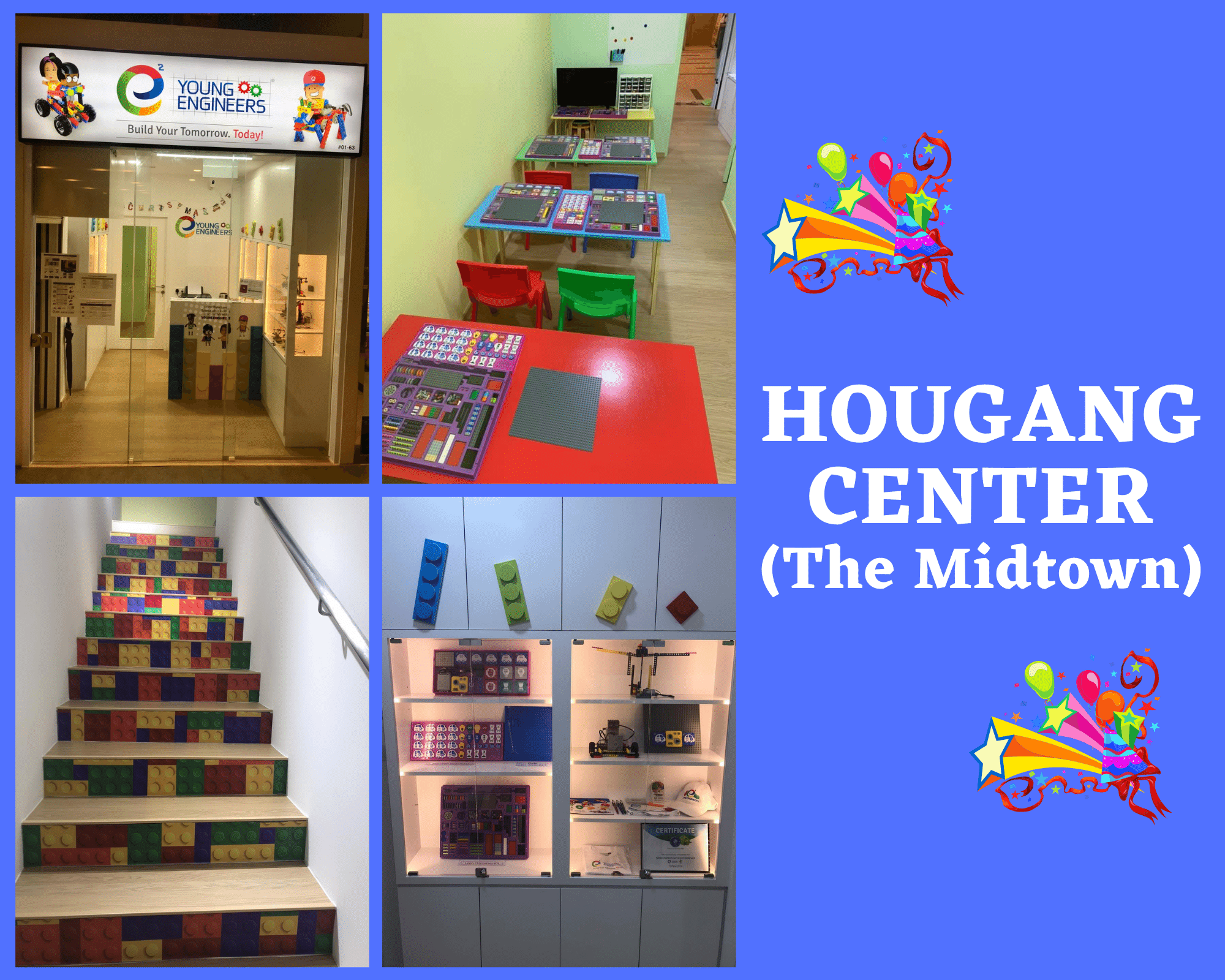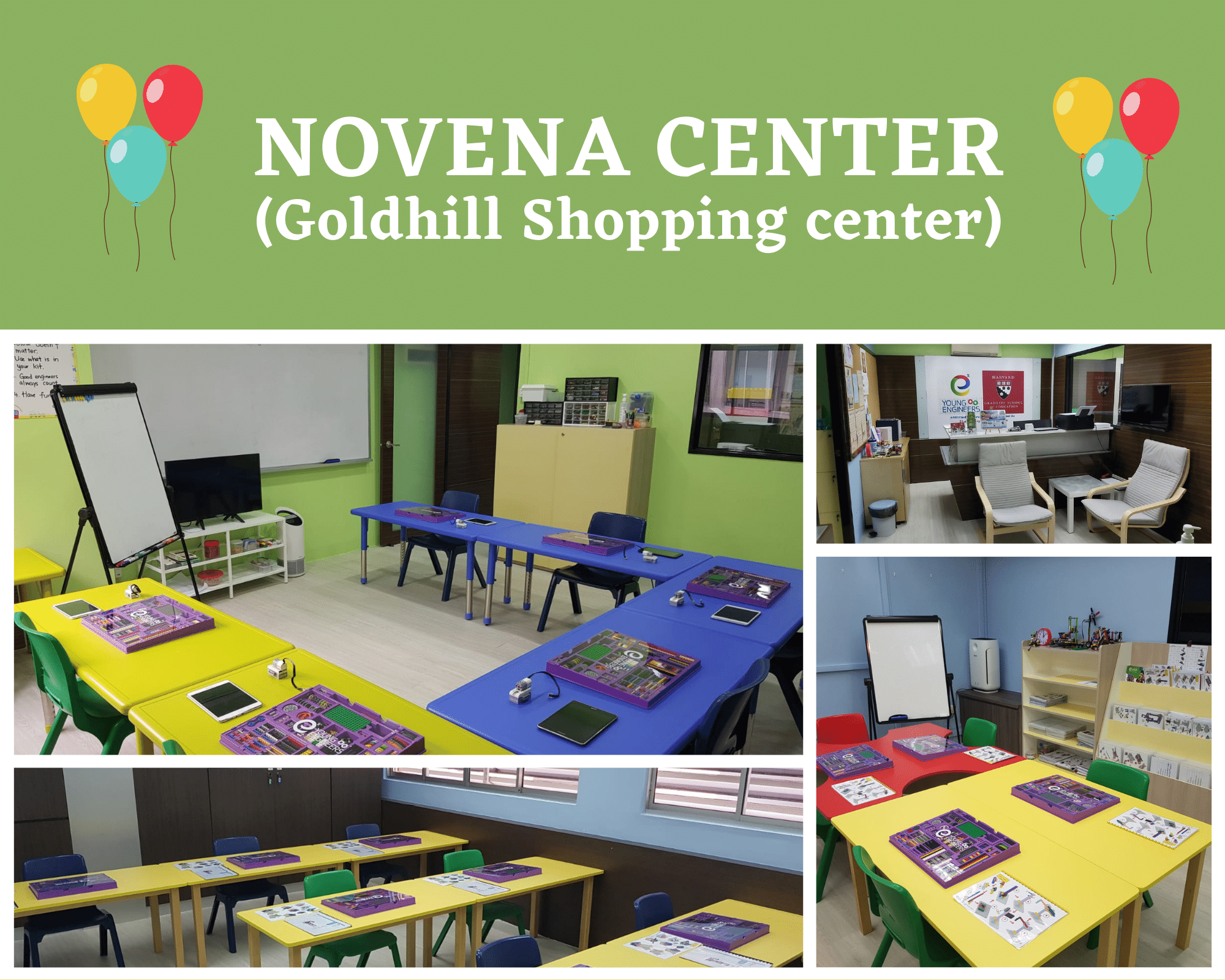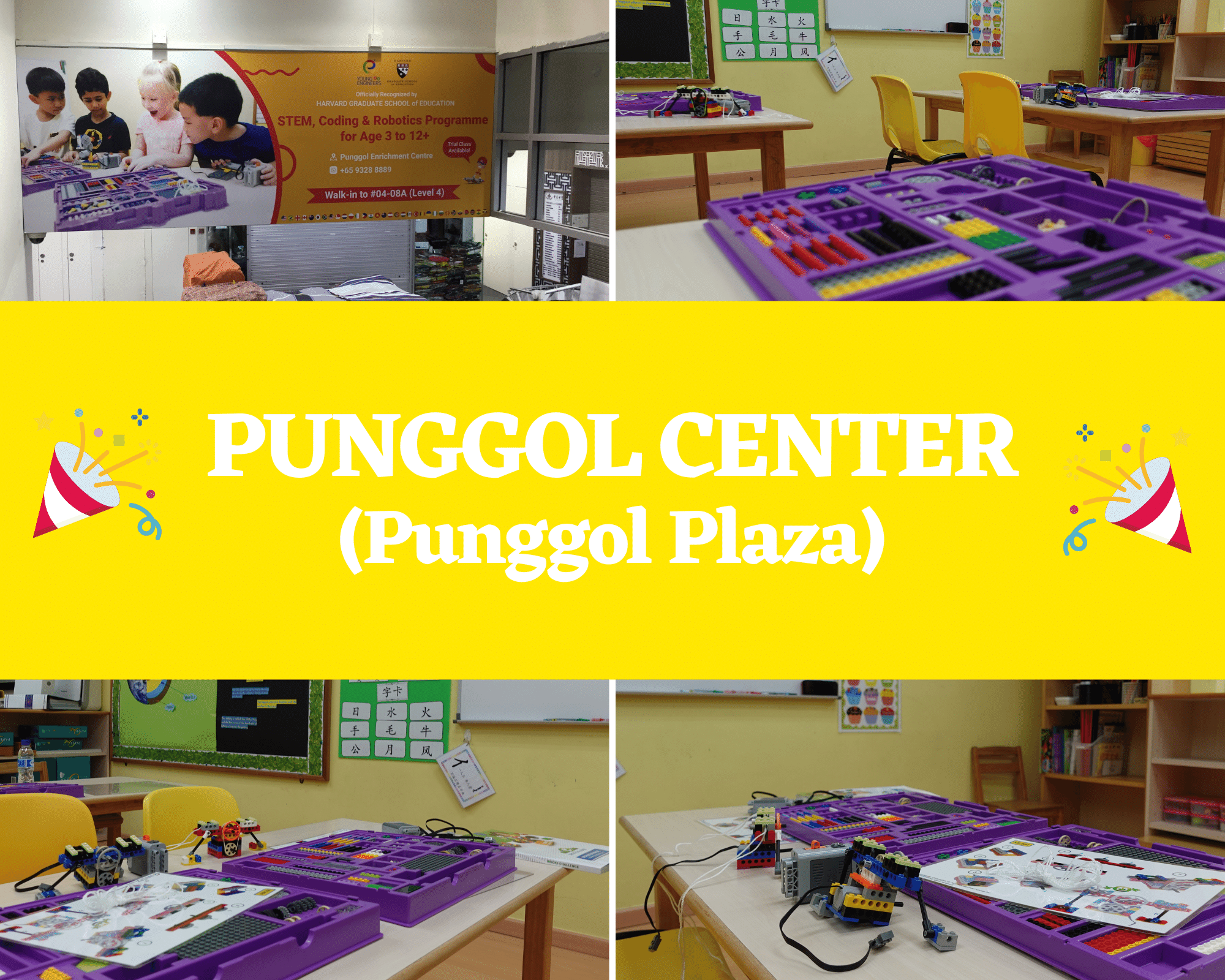A short description about STEM
S.T.E.M. is an acronym for Science, Technology, Engineering and Mathematics. It is a multidisciplinary subject where the students get to expose to all these subjects in every lesson. It’s a philosophy of education that embraces teaching skills and subjects in a way that resembles real life. The term STEM is used to express the immensely important educational goal of integrating all curriculum behind the skills that are thought to be the most vital to the success of students in the 21st Century. STEM education is evolving into an integrative curriculum aimed at preparing students for the challenges of the 21st Century. A research-based STEM Education in Singapore prepares students to become creative and innovative problem solvers, researchers, engineers, and designers.
Why is STEM important for our students?
Every job within the 21st Century is likely to require some amount of skill in science, technology, engineering and math. The integration of engineering and technology within the mathematics and science curriculum will make instruction more meaningful and engaging as well as provide students with the skills that are critical to success in the 21st Century. This includes the ability to think critically, solve complex problems, and drive advancements in science and technology. STEM is not just about science and math; it’s about being ready for college, careers and life.
STEM embraces higher order thinking skills identified as key in 21st Century Education: Application, Analysis, Creativity, Collaboration, Critical Thinking, and Communication.
Most importantly, STEM helps to foster a love of learning. And the most important gift an education should give a student is a love of learning.
The best proof is to let parent speak about our programs
❝
My two children thoroughly enjoyed attending the Brick Challenge programme. They look forward to their classes every week. I also appreciate that the staff and instructors have been very patient and always attentive to their needs/ questions. I also appreciate the imparting of discipline and other values like respect for teachers, teamwork etc. Overall, I have noticed that my children has better focus and able to sit through an assigned task and not giving up easily.
Kelvin Ngo
(Daddy of Catrice & Corwin)
❝
I would like to thank Young Engineers and its helpful staff and instructors who are handing the program by providing the progress report and sharing many great information. This program serves the age appropriate for my kid. With time, it would help enriching the education purpose to the children learning life. My daughter loves it."
Jane Li
(Mummy of Ivy)
❝
The staff and instructors are very friendly and helpful. They provide feedback on student's progress and take photo to share with parents. The course material is easy for my kid to understand. My kid looks forward to attend his class every week. He is more confident with spatial ability and communicating his thought process. I will recommend this to all parents whose kids enjoy Lego and programming.
Isabelle
(Mummy of Brighton, 7 YO)
student's PROGRESS REPORT
Parents are always asking us what the kids are learning and models they make during the class. One of our delivery for every term ends, our instructors will be providing a report on what they do during the class. There are 5 skillset we are focusing on for every term.
Fine motor skill
Spatial Vision skill
Social skill
Independence
Attention span
Endorsement by Harvard Graduate School of Education
When you sign your kids up for Young Engineers programs,
You’re signing them up for programs recognized by Global Education Innovation Initiative of the Harvard Graduate School of Education in collaboration with NIE Singapore:
“As one of the education stakeholders committed to the kind of education that is engaging, powerful, rigorous, and relevant to the 21st century so that all children in all contexts can thrive and make their world a better place.”
Source:
https://globaled.gse.harvard.edu/how-are-they-selected
https://globaled.gse.harvard.edu/e2-young-engineers-esye
Young Engineers 21st Century STEM Education
Young Engineers LEGO Robotic S.T.E.M education is the new 21st century education system integrating “applied learning” where students learn by engaging in direct application of skills, theories and models.
Our Bricks Challenge program introduces the 24 STEM principles and incorporates them into the projects where in every lesson, the kids will be building a different LEGO models. When they completed the whole Brick Challenge program comprising of 30 lessons, they will be equipped with the knowledge of these 24 key scientific and engineering concepts.
For example, one of the key principles in the world of Robotic is the principle of “Symmetry”. Without a clear understanding of this principle, most kids will build a model without following this law of “symmetry” and at the end, they realized that their Robots do not work at all. Our instructors will debug with them and make them understand why it does not work.
We teach the law of “gravity” by making an elevator project and introduce Isaac Newton and Albert Einstein (guess how are they related to this law of gravity?)
Our Program
Junior Bricks Challenge (recommended for Age 3-5)
Children start playing with Lego when they are 3 years old. Through Lego, they develop fine motor skills and the ability to work progressively in stages, they acquire planning skills and enjoy an imaginative and social game. Lego serves as tool that evokes motivation and a desire to develop such skills.
The program will expose the children to the concept of creative leisure, placing an emphasis on planning and execution skills, flexibility and social interaction with their peers. The children will learn how to independently build models in stages and increasing levels of difficulty. They will get to know the models’ functional uses and expand their usage with appropriate building additions. In addition, the children will play with their group mates and the game will combine social rules, such as playing in turn, cooperating in a group toward achieving a joint product, structured game with instructions and rules, imaginary and free play.
Bricks Challenge (recommended for Age 6-11)
Bricks Challenge is our most popular enrichment program. The overall course objective is to impart theoretical and applied knowledge in the fields of Science, Technology, Mechanical Engineering, and Math (STEM) by using LEGO® technic parts and other exciting tools.
The main goal of the course is to illustrate content through stories and demonstrations. Our students will learn math and physical principles through intuitive study, develop their independent learning and improve their building skills.
The course will provide mathematical integration between physical laws and the simple calculations to support them. The laws and mathematics are both illustrated through the construction of exciting LEGO® bricks models. Once the concepts have been demonstrated students enjoy hands on building the YE LEGO® models which provides experiential learning and reinforces the lessons topic. To carry out the building process, students receive a tailor made kit developed by Young Engineers
Galileo Technic (recommended for Age 8-12)
The Galileo Technic advanced enrichment program offers broad knowledge in Science, Technology, Mechanical Engineering, and Math (STEM).
Students explore machines from a professional engineering perspective, focusing on identifying solutions and promoting teamwork to build complex mechanisms.
The program provides an advanced level of thematic study, implementing mechanical engineering principles through building LEGO® parts based models. By analyzing physical, mathematical and technical aspects of a machine’s operation, students will implement the most efficient method for building their machine. The Galileo Technic program utilizes the spiral learning method where students study a certain topic, investigate it from different angles and contexts while integrating the core processes frequently applied by engineers.
This is an in-depth program to extend the Young Engineers – Bricks Challenge program; students will use expert level engineering thinking by considering the physical and mathematical aspects of building efficient machines. The program focuses on individual and group projects to prepare students for the dynamic 21st century working environment.
The Benefits of Participating in Young Engineers Enrichment Programs
Young Engineers Singapore has 6 centers to serve the growing demand of STEM and coding programs through fun learning activities.
3 ways to register for a trial class
From $38 To $65 (Subject To Different Programs)
*Yes, we do charge for trial class as the students will be using some of the leading edge education tools (1 set for each student) and experiencing the 21st century education system with Young Engineers International STEM and coding principles we impart to them during the trial lesson.
** Our class size is normally not more than 6 students in order to ensure our class quality. We cannot guarantee any slot availability (some programs tend to fill up faster).
Option 2
Click the button below to WhatsApp Us!
Option 3
Fill up the form and our friendly customers office will contact you for a trial class whenever available.




